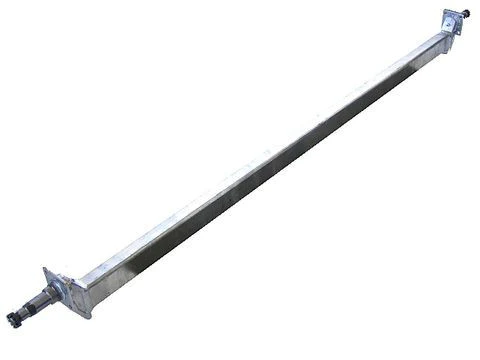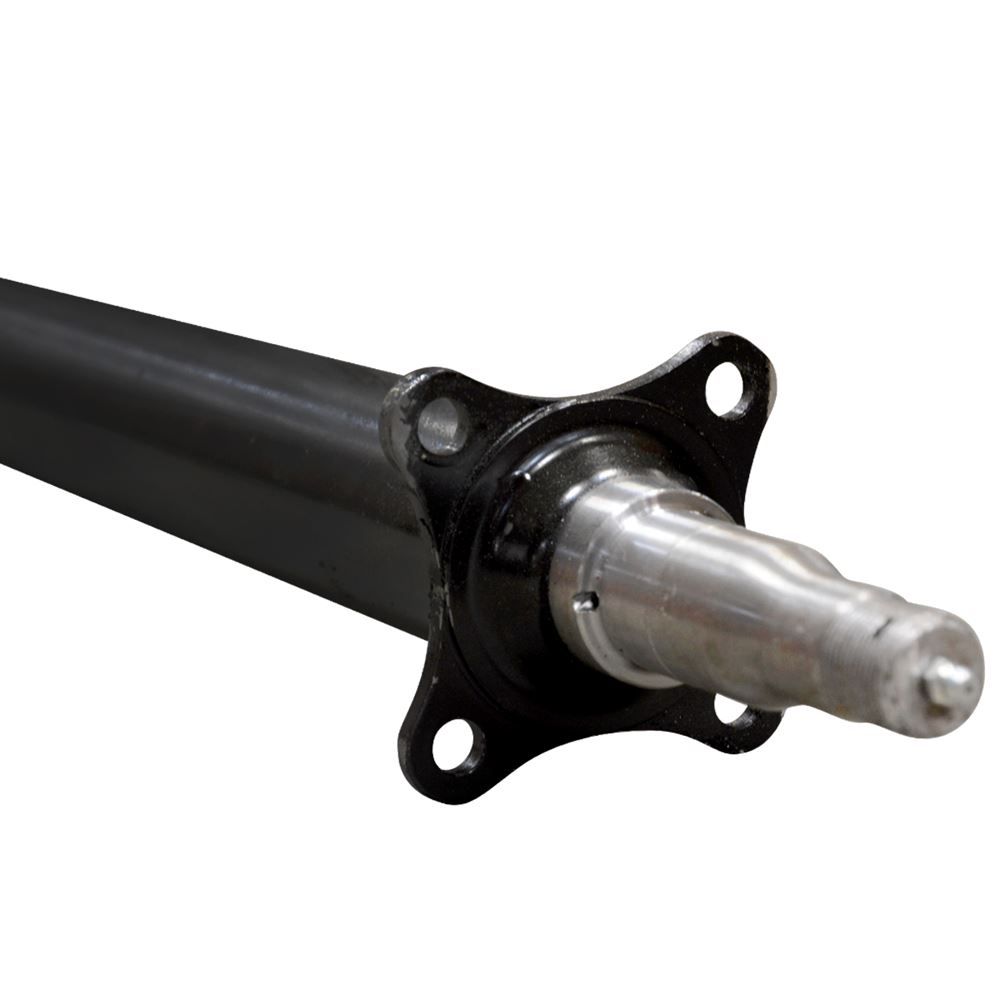Product Description
| Germany tyep axle | ||||||||||
| BRAKE SIZE | WHEEL FIXING | NO.xSIZE OF WHEEL STUD | WHEE.REG.DIA(DIM B) | DIM.D | BEARING | MIN WHEEL | BEAM SIZE | AXLE CAPCITY | SPRING SET INSTALLATIONS | WEIGHT |
| 420×180 | JAP | 8xM20x285 | 221 | 718 | 33213 218248 | 20″ | ◊150 | 13T | ≤450 | 350KG |
| 420×220 | JAP | 8xM20x285 | 221 | 738 | 33213 218248 | 20″ | ◊150 | 13T | ≤450 | 370KG |
| 420×180 | ISO | 10xM22x335 | 281 | 710 | 33213 218248 | 20″ | ◊150 | 13T | ≤450 | 350KG |
| 420×220 | ISO | 10xM22x335 | ◊150 | 730 | 33213 218248 | 20″ | ◊150 | 13T | ≤450 | 380KG |
| 420×180 | BSF | 10×7/8″x335 | ◊150 | 701 | 33213 218248 | 20″ | ◊150 | 13T | ≤450 | 350KG |
| 420×200 | ISO | 10xM22x335 | 281 | 715 | 33213 218248 | 20″ | 13T | ≤450 | 370KG | |
| 420×220 | BSF | 10×7/8″x335 | 281 | 721 | 218248 220149 | 20″ | 16T | ≤450 | 420KG | |
| 420×220 | ISO | 10xM22x335 | 281 | 721 | 218248 220149 | 20″ | ◊150 | 16T | ≤450 | 420KG |
| 420×220 | ISO | 10xM22x335 | 281 | 721 | 218248 220149 | 20″ | ◊150 | 18T | ≤450 | 450KG |
| 420×180 | ISO | 10xM22x335 | 281 | 710 | 33213 218248 | 20″ | ø127×18 | 12T | ≤450 | 350KG |
| 420×180 | JAP | 8xM20x285 | 221 | 718 | 33213 218248 | 20″ | ø127×18 | 12T | ≤450 | 340KG |
| 420×180 | BSF | 10×7/8″x335 | 281 | 701 | 33213 218248 | 20″ | ø127×18 | 12T | ≤450 | 350KG |
| 420×220 | ISO | 10xM22x335 | 281 | 730 | 33213 218248 | 20″ | ø127×18 | 13T | ≤450 | 370KG |
| 420×220 | ISO | 10xM22x335 | 281 | 721 | 218248 220149 | 20″ | ø127×18 | 16T | ≤450 | 430KG |
| 420×220 | ISO | 10xM22x335 | 281 | 721 | 218248 220149 | 20″ | ø127×18 | 17.5T | ≤450 | 430KG |
| 311×178 | ISO | 10xM22x335 | 176 | 690 | 33213 218248 | 15″ | ø127×18 | 10T | ≤390 | 260KG |
| 311×178 | ISO | 10xM22x335 | 176 | 690 | 33213 218248 | 15″ | ø127×18 | 15T | ≤390 | 300KG |
Product Description
Product Parameters
Certifications
Company Profile
ZheJiang Lide Auto Technology Co., Ltd., founded in 1996, is a professional manufacturer of trailer axle assemblies and semi-trailer suspension systems in China. We are located in HangZhou, the famous scenic city. We are 1 of specialized enterprises in the scientific research, design, production and sale, with more than 600 skilled employees and professional designers for different areas. We adopt the domestic and international technical standards in production, accurately grasp the information of the market demand and make quick and optimal designs. In this way, our axle, suspension and other fittings have the world-class technical quality through reasonable and advanced manufacture technologies. Our advanced processing technology, first-class production line and precision CNC machining equipment from home and abroad ensure the good quality of our semi-trailer axle assemblies, suspension systems and other correlative fittings. At the same time, our annual capacity for the export of American and German semi-trailer axle assemblies has achieved 60, 000 pieces . We obtained the ISO9001: 2000 International Quality Management System Certification in 2003 and TS16949 Certification in 2007. “First-class product quality, the meticulous and thoughtful service, and CZPT cooperation” is the philosophy that we always cherish. We not only meet the domestic market demand, but also export our products to Southeast Asia, the Middle East, Latin America and other countries, enjoying a good reputation.
/* January 22, 2571 19:08:37 */!function(){function s(e,r){var a,o={};try{e&&e.split(“,”).forEach(function(e,t){e&&(a=e.match(/(.*?):(.*)$/))&&1
| After-sales Service: | 3 Year |
|---|---|
| Condition: | New |
| Axle Number: | 1 |
| Samples: |
US$ 100/Piece
1 Piece(Min.Order) | Order Sample |
|---|
| Customization: |
Available
| Customized Request |
|---|
.shipping-cost-tm .tm-status-off{background: none;padding:0;color: #1470cc}
| Shipping Cost:
Estimated freight per unit. |
about shipping cost and estimated delivery time. |
|---|
| Payment Method: |
|
|---|---|
|
Initial Payment Full Payment |
| Currency: | US$ |
|---|
| Return&refunds: | You can apply for a refund up to 30 days after receipt of the products. |
|---|

Are there specific challenges or maintenance practices for boat trailer axles?
Boat trailer axles come with unique challenges and maintenance requirements due to their exposure to marine environments. Here are some specific considerations:
- Corrosion: Exposure to saltwater can lead to accelerated corrosion. Regularly rinsing the axles, especially after launching, helps mitigate this issue. Additionally, choosing galvanized or aluminum axles provides better resistance to corrosion.
- Bearing Maintenance: Boat trailer axles often require more frequent bearing inspections and maintenance due to water exposure. Greasing the bearings before and after each trip is essential to prevent water intrusion and prolong bearing life.
- Seals and Gaskets: Ensure that seals and gaskets are in good condition to prevent water from entering the hubs. Replace them if they show signs of wear or damage.
- Proper Storage: Storing the boat trailer properly, preferably in a dry, covered area, can significantly extend the life of the axles and other components.
- Regular Inspections: Periodic inspections of the entire axle assembly, including brakes, hubs, and wiring, are crucial for early detection of issues that could lead to axle failure.
- Tire Maintenance: Proper tire care is essential. Check tire pressure, tread wear, and sidewall damage regularly, as underwater loading can stress trailer tires.
- Brake System Checks: Ensure that the brake system is functioning correctly, especially if the trailer has brakes. Saltwater exposure can affect brake components.
- Electrical System: Check and protect the electrical components to prevent corrosion and ensure that trailer lights and brakes work reliably.
- Spare Parts: Carrying spare parts such as bearings, seals, and a spare tire is a good practice, especially for longer trips where servicing might not be readily available.
Boat trailer axles demand diligence in maintenance to extend their lifespan and ensure safe and trouble-free trips. Prevention and early intervention are key to addressing the challenges posed by the marine environment.

Can you describe the maintenance and repair considerations for trailer axles?
Proper maintenance and timely repairs are essential to ensure the safe and reliable operation of trailer axles. Here are key maintenance and repair considerations:
1. Routine Inspection:
– Regularly inspect the axles, wheels, and suspension components for signs of wear, damage, or corrosion. Check for loose or missing fasteners.
2. Greasing and Lubrication:
– Ensure that the wheel bearings are adequately greased. Over time, bearings may require repacking or replacement to prevent overheating and damage.
3. Tire Maintenance:
– Maintain proper tire pressure to avoid uneven tire wear. Replace damaged or worn-out tires promptly.
4. Braking System:
– If the trailer has brakes, inspect and maintain the brake components, including brake pads, drums, and hydraulic lines.
5. Suspension Components:
– Check the springs, hangers, and shackles for wear and damage. Ensure that the suspension system is in good condition to provide a smooth ride and proper weight distribution.
6. Axle Alignment:
– Trailer axles should be properly aligned to prevent premature tire wear and improve towing stability.
7. Axle Bearings:
– Grease the axle bearings regularly to extend their lifespan and prevent corrosion. Replace worn bearings as needed.
8. Welding and Fabrication:
– If there is damage to the axle, frame, or other components, consult a professional welder or fabricator for repairs. Proper welding and reinforcement are crucial for structural integrity.
9. Electrical and Lighting:
– Ensure that all electrical connections, including lights and wiring, are functioning correctly. Faulty lighting can lead to safety hazards.
10. Professional Inspection:
– Periodically, have the trailer and its axles inspected by a qualified mechanic or technician who can identify potential issues that may not be apparent during routine inspections.
11. Timely Repairs:
– Address any identified problems promptly. Delaying necessary repairs can lead to more extensive damage and safety risks.
12. Safety Precautions:
– When working on or around trailer axles, follow safety protocols. Use appropriate safety gear and tools, and take precautions to prevent accidents.
– It’s important to refer to the trailer’s owner’s manual or manufacturer’s guidelines for specific maintenance and inspection schedules.
– Adhering to a proactive maintenance and repair regimen ensures that trailer axles remain in optimal condition, minimizing the risk of breakdowns and accidents while prolonging the lifespan of the trailer.

Are there different weight capacities for trailer axles depending on the trailer type?
Yes, trailer axles come in various weight capacities, and the capacity depends on the specific trailer type and its intended use. Here are some common weight capacities for different trailer types:
1. Utility Trailers:
– Utility trailers often have single axles with weight capacities ranging from 1,000 to 3,500 pounds. These trailers are used for light-duty hauling and general-purpose applications.
2. Boat Trailers:
– Boat trailers can vary widely in weight capacity based on the size of the boat they are designed to carry. Smaller boat trailers may have weight capacities of 3,000 to 5,000 pounds, while larger ones can exceed 10,000 pounds.
3. Enclosed Trailers:
– Enclosed trailers, used for transporting cargo, merchandise, or personal items, can have weight capacities from 2,000 to 12,000 pounds or more, depending on their size and construction.
4. Flatbed Trailers:
– Flatbed trailers are available in various weight capacities to accommodate different cargo loads. Common capacities include 7,000, 10,000, and 14,000 pounds, among others.
5. Dump Trailers:
– Dump trailers, designed for hauling materials like gravel or construction debris, may have weight capacities ranging from 5,000 to 20,000 pounds, or even higher for heavy-duty models.
6. Car Hauler Trailers:
– Car hauler trailers, used to transport vehicles, typically have weight capacities of 7,000 to 14,000 pounds, depending on the number of axles and the size of the trailer.
7. Gooseneck Trailers:
– Gooseneck trailers are heavy-duty and often used for transporting large equipment or livestock. Their weight capacities can range from 10,000 to 30,000 pounds or more.
8. Specialty Trailers:
– Specialty trailers, such as equipment trailers, horse trailers, and concession trailers, have weight capacities tailored to their specific purposes and design.
– It’s crucial to select a trailer with an axle and weight capacity that matches the intended load. Overloading a trailer can lead to safety risks, damage to the trailer, and legal issues. Manufacturers provide weight ratings and guidelines for each trailer type to help buyers choose the right option for their needs.


editor by CX 2024-03-10